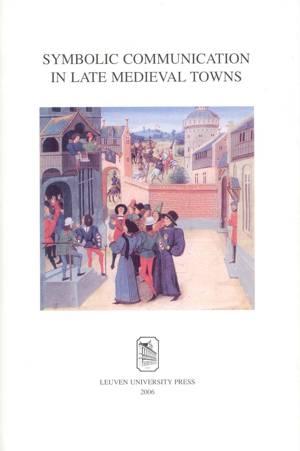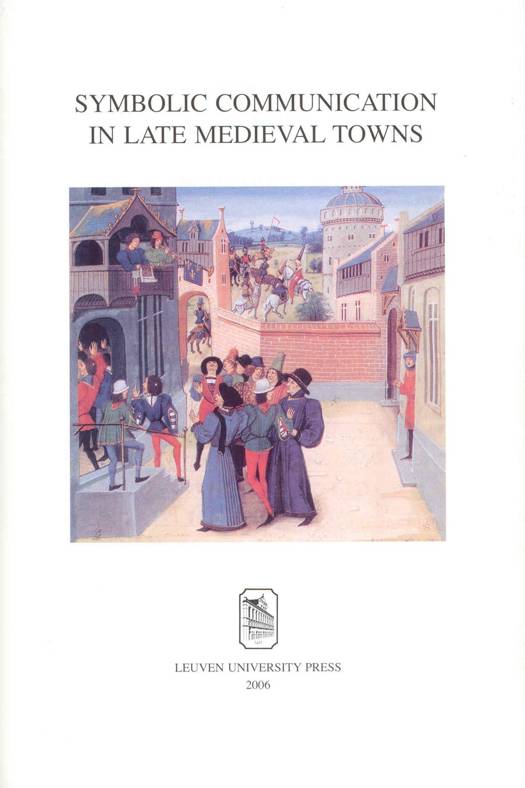
- Afhalen na 1 uur in een winkel met voorraad
- Gratis thuislevering in België vanaf € 30
- Ruim aanbod met 7 miljoen producten
- Afhalen na 1 uur in een winkel met voorraad
- Gratis thuislevering in België vanaf € 30
- Ruim aanbod met 7 miljoen producten
Zoeken
Symbolic communication in late medieval towns E-BOOK
€ 10,00
€ 21,00
Omschrijving
This volume addresses symbolic forms of communication in the late medieval towns of the Low Countries, northern France and the Swiss Confederation. In context of State centralisation, the political autonomy of these towns was threatened by tensions with higher levels of power. Within this conflict both rulers and towns employed symbolic means of communication to legitimise their power position.
The intensive use of rituals like theatreplays and gift-exchange demonstrates that symbolic forms of communication were no routine jobs. Towns and rulers actively appropriated and reread older traditions in order to adapt them to the new settings in which they were employed. Tradition and innovation had to be balanced well, in order for the audience to understand the ritual correctly. However, the organiser could never control the new layers of meaning the audience would attach to the event.
This volume seeks to explore how new layers of meaning were attached to well-known traditions, how these rituals were perceived and when the recognizability of a ritual was damaged by such appropriations. Both public encounters between rulers and towns are studied, as well as the use of ritual to express the political and religious relations between the various social groups within the towns.
The intensive use of rituals like theatreplays and gift-exchange demonstrates that symbolic forms of communication were no routine jobs. Towns and rulers actively appropriated and reread older traditions in order to adapt them to the new settings in which they were employed. Tradition and innovation had to be balanced well, in order for the audience to understand the ritual correctly. However, the organiser could never control the new layers of meaning the audience would attach to the event.
This volume seeks to explore how new layers of meaning were attached to well-known traditions, how these rituals were perceived and when the recognizability of a ritual was damaged by such appropriations. Both public encounters between rulers and towns are studied, as well as the use of ritual to express the political and religious relations between the various social groups within the towns.
Specificaties
Betrokkenen
- Uitgeverij:
Inhoud
- Aantal bladzijden:
- 147
- Taal:
- Engels
- Reeks:
Eigenschappen
- Productcode (EAN):
- 9789461661135
- Verschijningsdatum:
- 7/04/2017
- Uitvoering:
- E-book
- Beveiligd met:
- Digital watermarking
- Formaat:

Alleen bij Standaard Boekhandel
Beoordelingen
We publiceren alleen reviews die voldoen aan de voorwaarden voor reviews. Bekijk onze voorwaarden voor reviews.










